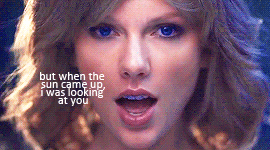So you’ve finished your novel. Hot-diggity, that’s amazing! Pour yourself a drink first because you, my good fellow, deserve one.

Next step on your list is querying agents. Precious few writers ever get to this stage, so pour yourself another drink. Literary agents are the magical gateway to publishers and that contract you need to swaddle your brain child. Some publishers, usually small and indie ones, accept unsolicited manuscripts, but for big ones like HarperCollins or Penguin or Bloomsbury, you need an agent. Editors often have lunch dates with agents, talk about what they’re looking for, then the agent—you see where I’m going with this, right?
Even if you’re planning on reaching out to publishers directly, you still need a query. Queries are basically the blurb on the back of a book. They need to hook readers in.
People, even professionals, have different opinions on what the first line should be. Should it be “I’m writing to query Super Awesome Novel, which is a 90, 000 word YA Paranormal” or “If you think your job is bad, try torturing souls in Hell for all eternity. Without pension.”
Personally, I lean towards the second. (FYI, that’s a line from my own query letter for a YA Paranormal.) It’s something you’d see on the back flap and more inviting. Remember agents read hundreds of queries a day. Hook ’em in early. Don’t make them work for it.
The body is what your manuscript is about—and what’s at stake. This is very important. Something has to be at stake in your novel, or it’s just a discourse of events. Take Harry Potter: if he doesn’t defeat Voldemort, the Wizarding World will be doomed. Even fluffy contemporaries have stakes, like will the boy get the girl, or will the MC achieve self-peace. Stakes are what keep readers turning pages.

Don’t make it too complicated. The blurb of Veronica Roth’s upcoming book confused me to no end and if she wasn’t Veronica goddamn Roth, I’d click away. You do not have that luxury. You are a nameless author in a sea of aspiring writers. Keep it simple, keep them wanting more.
Try to stay away from words you invented within your manuscript. If they’re an essential plot point, explain them. A good rule of thumb is three foreign words maximum. A query is no longer than a page and you have to add in word count, the genre, comp titles (published novels that are similar to yours, like The Maze Runner was marketed towards The Hunger Games fans), and maybe why you’re querying this particular agent especially. The last part is honestly up to you. Some agents like the personal touch, some agents don’t care. The actual blurb should be no more than 200 words. All that stuff I mentioned, including a one-sentence About You, should be put at the very end.
Now you’re probably shaking in your boots. 200 words? My manuscript is 100k! How do you expect me to condense that to the price of a good steak dinner?
Well, you can. Look at all those titles on your shelf. They don’t have mile-long synopses, yet something attracted you to buy them. True, that back flap was probably put together by a marketing team, but they had to go through querying, too. If they can do it, so can you.
If you’re looking for an example, here’s the rest of mine:
Matt is bored. Stoking the fires of Hell is a nice gig and all, but anything gets old after a couple of centuries. So he comes up with the most brilliant plan to pass the time: possessing a human. Soon, Matt’s having the time of his life: munching down cheese, taking joyrides on wheelchairs, experiencing high school—the works.
There’s just one little catch: he’s technically not supposed to go body-snatching, and certainly not allowed to stay long-term. If he gets found out, there’ll be hell to pay.
Yet Matt can’t bear to leave his host—or his new life.
But whatever his decision, he better make it fast. An Archangel’s already on his tail and his demon siblings are getting suspicious. And to top it off, he might, quite possibly be falling for an atheist with muscular dystrophy and an attitude.
It’s time to decide once and for all: is he a man—or a demon?
Did it do well? That, my friends, is a question I’ll answer in another post. Stay tuned for step two of the querying process: The Checklist. Or as I like to call it: Stuff To Do Before Pressing Send to Every Agent in New York.
Ciao, darlings!









 Winter, 1945. Four teenagers. Four secrets.
Winter, 1945. Four teenagers. Four secrets. a family of artists, readers, and music lovers. As an author of historical fiction, Ruta is drawn to stories of strength through struggle. Her award-winning debut novel, “Between Shades of Gray” was inspired by her family’s history in Lithuania and is published in 45 countries. Her second novel, “Out of the Easy” is set in the French Quarter of New Orleans in 1950, and her third novel “Salt to the Sea” exposes one of the greatest hidden disasters of World War II. Ruta lives in a treehouse in the hills of Tennessee.
a family of artists, readers, and music lovers. As an author of historical fiction, Ruta is drawn to stories of strength through struggle. Her award-winning debut novel, “Between Shades of Gray” was inspired by her family’s history in Lithuania and is published in 45 countries. Her second novel, “Out of the Easy” is set in the French Quarter of New Orleans in 1950, and her third novel “Salt to the Sea” exposes one of the greatest hidden disasters of World War II. Ruta lives in a treehouse in the hills of Tennessee.















